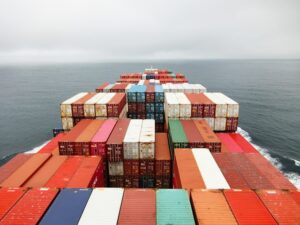Following Russia’s withdrawal from the Black Sea grain deal in July, India imposed a ban on the export of non-basmati white rice. Additionally, India’s ban on the export of broken rice, which was imposed in September 2022, is still in place.
India’s move to ban rice export was motivated by a few reasons, namely surging food prices, high inflation, and possible rice shortage that El Niño may cause, The Guardian noted.
However, this decision is causing a ripple effect around the globe, as India is the top rice exporter in the world.
The pressure now falls on its first contender – Thailand – and experts speculate that the fear of shortage is causing “panic buying” or hoarding in the country, which means there’s less rice to export.
Over the course of weeks, rice prices in Thailand surged by nearly 20% – from 17,000 baht ($478) to around 21,000 baht ($597) per ton, Nikkei Asia reported.
“Thailand has never had tight supplies [up to now], as we have plenty of rice surplus every year,” said Chookiat Ophaswongse, honorary president of the Thai Rice Exporters Association, as cited by Nikkei Asia. “But this year, the Thai rice market is in chaos because exporters cannot offer any price quotations as they are concerned about price fluctuations and uncertainty about supply.”
According to a Reuters report, India currently accounts for over 40% of the rice trade worldwide, making it difficult for other exporting nations like Thailand and Vietnam, to catch up.
“India is now much more important for rice trade than it was in 2007 and 2008. The Indian ban back then forced other exporters to implement similar restrictions in a domino effect. Even this time, they have few options but to react to market forces,” an unnamed New Delhi grain dealer told Reuters.
Shortage in rice supplies can cause a further spike in the grain’s price amid ongoing food inflation, causing problems in low-income countries in Asia and Africa.
According to Nitin Gupta, senior vice president of Olam Agri India, one of the largest rice exporters globally, “Thailand, Vietnam, and other exporting countries are poised to step up their game, all in a bid to bridge the gap stemming from India’s shortfall,” Reuters reports.
Gupta added that “there exists a constraint in their surplus capacity for exports. This constraint could set the stage for a surge in prices at other origins, reminiscent of the notable price rally we witnessed in 2007/08.”














